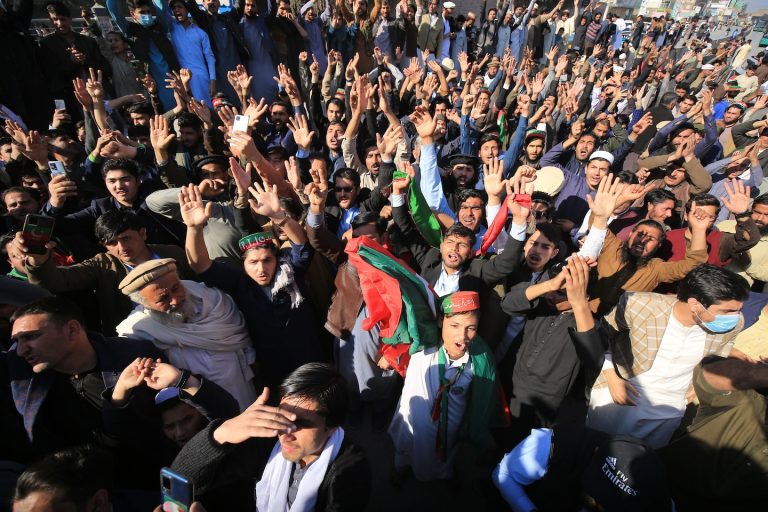Sharif indicated in a speech he delivered on Friday evening that his party would seek to form an expanded coalition government. He said: “Since we do not have a clear majority, we will communicate in order to get the country out of the quagmire in which it lives.”
But Sharif's outreach is unlikely to include leadership of Khan's party, which remains deeply at odds with the Pakistani establishment and is unlikely to return to power, despite winning races won by people associated with him.
But the future government could include some candidates who ran on Khan's party ticket. The court had ordered all of its candidates to run as independents in the period leading up to the elections, which now opens the possibility of rival parties poaching each other in the coming days. This could turn the upcoming coalition talks into a particularly fraught process and deepen the polarization between Khan's supporters and opponents in this nuclear-armed nation of 240 million.
Khan, who was arrested in August after a court found him guilty of corruption, remains in prison and has been buried under several lawsuits. He did not run in these elections, and his party will not have a clear coalition partner in Parliament. Sharif's party has a clearer path to power if it can form a coalition with the Pakistan People's Party, led by Bilawal Bhutto Zardari, which represents another major Pakistani political family.
But Thursday's preliminary election results still indicate continued support for the Pakistan Tehreek-e-Insaf, which was marginalized politically by the Pakistani establishment after Khan clashed with the military two years ago.
“Your massive turnout has surprised everyone,” Khan told his supporters in an AI speech from prison on Friday evening. “By voting, you have laid the foundation for true freedom.”
His supporters say Khan's party has been dismantled over the past year, with several of its leaders arrested and its offices raided. As vote counting slowed Thursday evening, remnants of the party's leadership raised the possibility of voter fraud.
“We demand that the results not be tampered with,” said Omar Ayub Khan, general secretary of PTI. The leadership of the Pakistan Tehreek-e-Insaf party called on its supporters to gather outside polling stations to demand a fair counting process.
In a statement, the US State Department condemned “electoral violence and restrictions on the exercise of human rights and fundamental freedoms, including attacks on media workers and restrictions on access to the Internet and communications services,” and said it was “concerned by allegations of attacks on civilians.” Interfering in the electoral process.”
There were some initial reports of protests by PTI supporters over allegations of election rigging in parts of the country on Friday. Two people were killed in northwestern Pakistan after PTI supporters clashed with police over allegations of vote rigging there, officials said.
Pakistani political analyst Ijaz Khattak warned that “there are strong possibilities for further instability,” especially if Tehreek-e-Insaf supporters feel that their candidates are being coerced into joining other parties.
When Khan was arrested on corruption charges early last year, the country witnessed days of clashes between security forces and his supporters. The Pakistani government later compared those riots to the attack on the US Capitol on January 6, 2021 by supporters of Donald Trump.
Khan's party rejected those comparisons, saying most of his supporters protested peacefully. But the Pakistan Tehreek-e-Insaf (PTI) party warned that it may not be able to control the anger of its supporters if it robs them of what they see as an electoral victory.
Pakistani authorities cited security concerns to justify shutting down all internet and mobile phone connections nationwide starting early Thursday, when voting began, but PTI claimed the measures were part of a sophisticated attempt to rig the election.
Pakistan's interim Interior Minister Gohar Ijaz defended the closure of polling stations on Friday, saying it was “not an easy decision” but necessary to deter militants who may have tried to attack polling stations with remote controls. Mobile internet services were restored in large parts of Pakistan by Friday morning.
Despite precautions, 12 people were killed in 51 attacks “aimed at disrupting the electoral process” in the remote provinces of Balochistan and Khyber Pakhtunkhwa – a number that appears to be lower than some of the worst-case scenarios in the run-up to the election, the Pakistani military said. The election.
Nawaz Khan reported from Peshawar, Pakistan.

